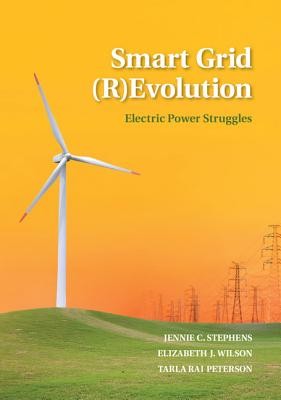
- We will send in 10–14 business days.
- Author: Jennie C Stephens
- Publisher: Cambridge University Press
- ISBN-10: 1107047285
- ISBN-13: 9781107047280
- Format: 18.3 x 25.7 x 2.5 cm, kieti viršeliai
- Language: English
- SAVE -10% with code: EXTRA
Reviews
Description
The term "smart grid" has become a catch-all phrase to represent the potential benefits of a revamped and more sophisticated electricity system that can fulfill several societal expectations related to enhanced energy efficiency and sustainability. Smart grid promises to enable improved energy management by utilities and by consumers, to provide the ability to integrate higher levels of variable renewable energy into the electric grid, to support the development of microgrids, and to engage citizens in energy management. However, it also comes with potential pitfalls, such as increased cybersecurity vulnerabilities and privacy risks. Although discussions about smart grid have been dominated by technical and economic dimensions, this book takes a sociotechnical systems perspective to explore critical questions shaping energy system transitions. It will be invaluable for advanced students, academic researchers, and energy professionals in a wide range of disciplines, including energy studies, environmental and energy policy, environmental science, sustainability science, and electrical and environmental engineering.
EXTRA 10 % discount with code: EXTRA
The promotion ends in 22d.00:53:04
The discount code is valid when purchasing from 10 €. Discounts do not stack.
- Author: Jennie C Stephens
- Publisher: Cambridge University Press
- ISBN-10: 1107047285
- ISBN-13: 9781107047280
- Format: 18.3 x 25.7 x 2.5 cm, kieti viršeliai
- Language: English English
The term "smart grid" has become a catch-all phrase to represent the potential benefits of a revamped and more sophisticated electricity system that can fulfill several societal expectations related to enhanced energy efficiency and sustainability. Smart grid promises to enable improved energy management by utilities and by consumers, to provide the ability to integrate higher levels of variable renewable energy into the electric grid, to support the development of microgrids, and to engage citizens in energy management. However, it also comes with potential pitfalls, such as increased cybersecurity vulnerabilities and privacy risks. Although discussions about smart grid have been dominated by technical and economic dimensions, this book takes a sociotechnical systems perspective to explore critical questions shaping energy system transitions. It will be invaluable for advanced students, academic researchers, and energy professionals in a wide range of disciplines, including energy studies, environmental and energy policy, environmental science, sustainability science, and electrical and environmental engineering.


Reviews